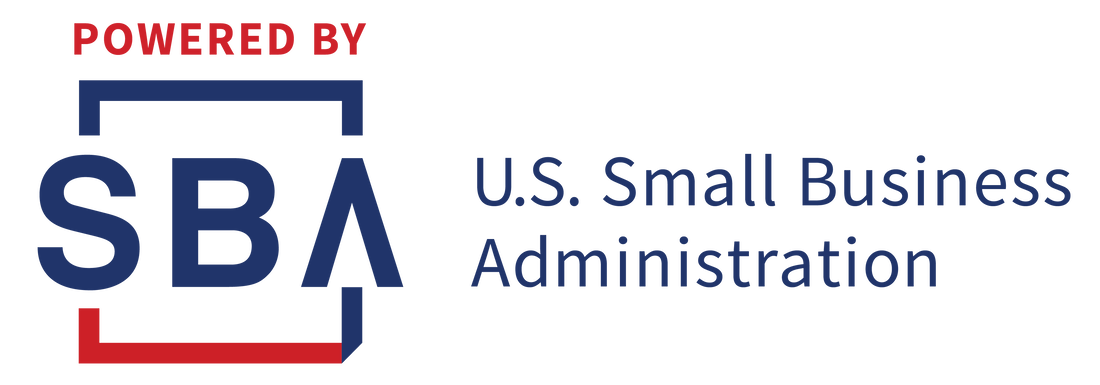- Click here to read the full document: Paycheck Protection Program Loans Frequently Asked Questions
- Click here to download the Toledo SBDC's PPP Forgiveness Determination spreadsheet: PPP Forgiveness Determination
Question 23 Question: How do the $10 million cap and affiliation rules work for franchises?
SBA: If a franchise brand is listed on the SBA Franchise Directory, each of its franchisees that meets the applicable size standard can apply for a PPP loan. (The franchisor does not apply on behalf of its franchisees.) The $10 million cap on PPP loans is a limit per franchisee entity, and each franchisee is limited to one PPP loan.
Bill Wersell, CBA, Vice President of Business Development Services: Same as any small business if they are a true franchise and not owned by the brand.
Question 29: Can lenders use scanned copies of documents or E-signatures or E-consents permitted by the E-sign Act?
SBA: Yes. All PPP lenders may accept scanned copies of signed loan applications and documents containing the information and certifications required by SBA Form 2483 and the promissory note used for the PPP loan. Additionally, lenders may also accept any form of E-consent or E-signature that complies with the requirements of the Electronic Signatures in Global and National Commerce Act (P.L. 106-229).
Question 32: Does the cost of a housing stipend or allowance provided to an employee as part of compensation count toward payroll costs?
SBA: Yes. Payroll costs includes all cash compensation paid to employees, subject to the $100,000 annual compensation per employee limitation.
Question 37: Do businesses owned by private companies with adequate sources of liquidity to support the business's ongoing operations qualify for a PPP loan?
SBA: In addition to reviewing applicable affiliation rules to determine eligibility, all borrowers must assess their economic need for a PPP loan under the standard established by the CARES Act and the PPP regulations at the time of the loan application. Although the CARES Act suspends the ordinary requirement that borrowers must be unable to obtain credit elsewhere (as defined in section 3(h) of the Small Business Act), borrowers still must certify in good faith that their PPP loan request is necessary. Specifically, before submitting a PPP application, all borrowers should review carefully the required certification that “[c]urrent economic uncertainty makes this loan request necessary to support the ongoing operations of the Applicant.” Borrowers must make this certification in good faith, taking into account their current business activity and their ability to access other sources of liquidity sufficient to support their ongoing operations in a manner that is not significantly detrimental to the business. For example, it is unlikely that a public company with substantial market value and access to capital markets will be able to make the required certification in good faith, and such a company should be prepared to demonstrate to SBA, upon request, the basis for its certification.
Lenders may rely on a borrower’s certification regarding the necessity of the loan request. Any borrower that applied for a PPP loan prior to the issuance of this guidance and repays the loan in full by May 7, 2020 will be deemed by SBA to have made the required certification in good faith.
BW: Yes if the subsidiary is suffering from COVID issues and can post a separate tax return.
Question 40: Will a borrower’s PPP loan forgiveness amount (pursuant to section 1106 of the CARES Act and SBA’s implementing rules and guidance) be reduced if the borrower laid off an employee, offered to rehire the same employee, but the employee declined the offer?
SBA: No. As an exercise of the Administrator’s and the Secretary’s authority under Section 1106(d)(6) of the CARES Act to prescribe regulations granting de minimis exemptions from the Act’s limits on loan forgiveness, SBA and Treasury intend to issue an interim final rule excluding laid-off employees whom the borrower offered to rehire (for the same salary/wages and same number of hours) from the CARES Act’s loan forgiveness reduction calculation. The interim final rule will specify that, to qualify for this exception, the borrower must have made a good faith, written offer of rehire, and the employee’s rejection of that offer must be documented by the borrower. Employees and employers should be aware that employees who reject offers of re-employment may forfeit eligibility for continued unemployment compensation.
BW: No, if an employee decides not to return the business will not be hurt. They could use the funds to hire someone else or return the money if not enough replacements can be found.
The Toledo SBDC's PPP Forgiveness Determination spreadsheet is a tool for clients to track PPP spending to assist with loan forgiveness, but does not ensure forgiveness or the granting of a PPP loan.


 RSS Feed
RSS Feed
